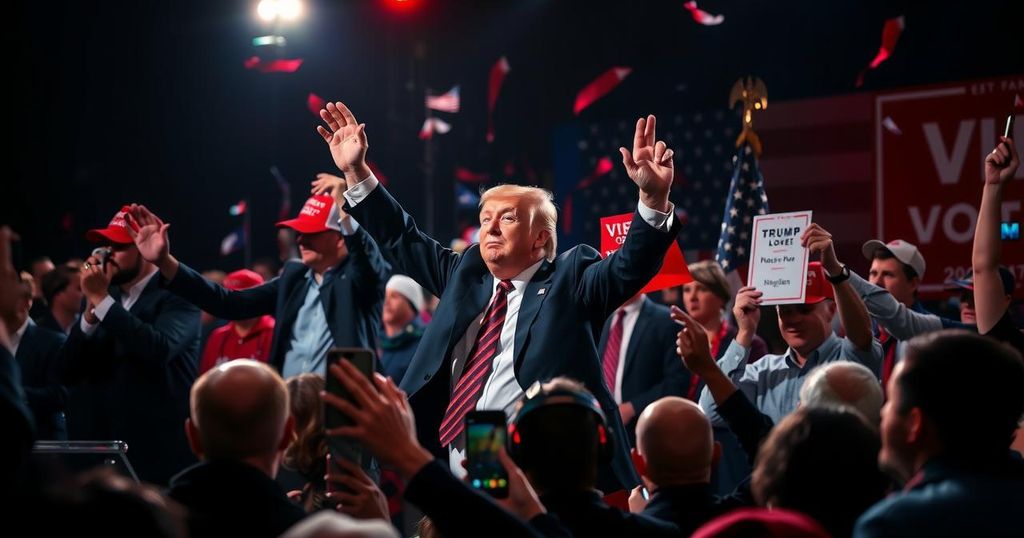Global Reactions to Trump’s Reelection: Preparing for Four More Years of Unpredictability

Donald J. Trump’s reelection signals a shift towards isolationism and protectionism. His pledges to end conflicts and increase tariffs could alter U.S. relations globally. Experts express concerns over the potential empowerment of autocrats and the destabilization of democratic alliances. Amid uncertainty, global leaders seek reassurance in their partnerships with the U.S.
In the wake of Donald J. Trump’s decisive victory in the recent U.S. presidential election, the global community braces itself for another four years marked by unpredictability and a reinforcement of “America first” policies. Trump’s past term has set a precedent of abrupt shifts in U.S. foreign relations, with recent pledges suggesting a significant recalibration of America’s dynamics with both allies and adversaries. For instance, he has vowed to terminate the conflict in Ukraine within 24 hours, an assertion interpreted to imply a reduction in American support for the country, ultimately benefiting Russia. Economically, his administration may adopt more isolationist and protectionist stances, characterized by enhanced tariff regimes and a reduction in immigration. International relations experts are voicing concerns that such strategies could dismantle frameworks designed to promote stability and cooperation, possibly empowering authoritarian regimes while diminishing America’s commitment to democratic partners. As history suggests, these changes could parallel the tumultuous dynamics seen during the Cold War era. James Curran, a professor at the University of Sydney, remarked on the potential ramifications: “It accelerates the already deep trend of an America looking inward.” This quote underscores fears that traditional allies may need to proactively safeguard multilateralism amidst America’s retreat into isolation. In light of previous experiences during Trump’s first term, foreign officials remain cautiously optimistic, ensuring that key elements of their diplomatic relationships with the USA might remain intact despite the anticipated shifts. The administration’s future moves will continue to be unpredictable, a hallmark of Trump’s approach to foreign policy, which emphasizes keeping allies and adversaries alike in suspense.
The article addresses the global reactions following Donald J. Trump’s reelection, highlighting the potential shifts in U.S. foreign policy that could emerge as a result. Trump’s campaign rhetoric and promises, although lacking detailed foreign policy discourse, hint at a dramatic change in the country’s approach to international relations. The foreboding sentiment among global leaders indicates the possible retraction of U.S. engagement in international affairs, raising alarms about security, economic stability, and the support of democratic norms worldwide. Experts in international relations anticipate that Trump’s policies may not only affect allies but also embolden authoritarian governments, fundamentally altering the geopolitical landscape.
In summary, Donald J. Trump’s election signifies a potential shift toward isolationism and protectionism that may redefine America’s global leadership role. With his promises to end the war in Ukraine and impose stricter tariffs, the implications extend beyond mere policy changes; they invite a reexamination of long-standing alliances. As nations prepare for this shifting dynamic, the uncertainty of U.S. foreign policy looms large, challenging the same multilateral frameworks that have secured global cooperation post-World War II.
Original Source: www.nytimes.com








